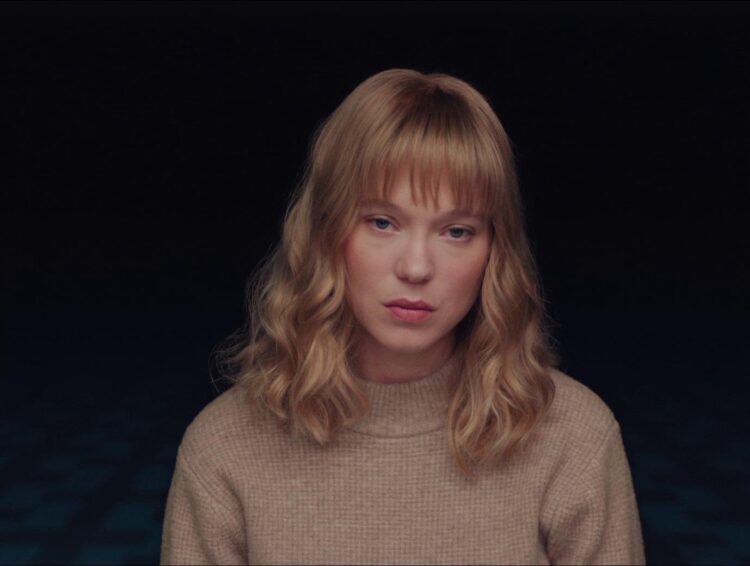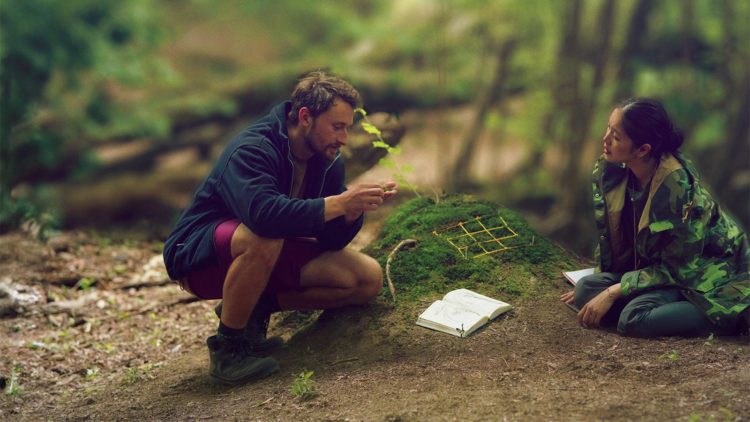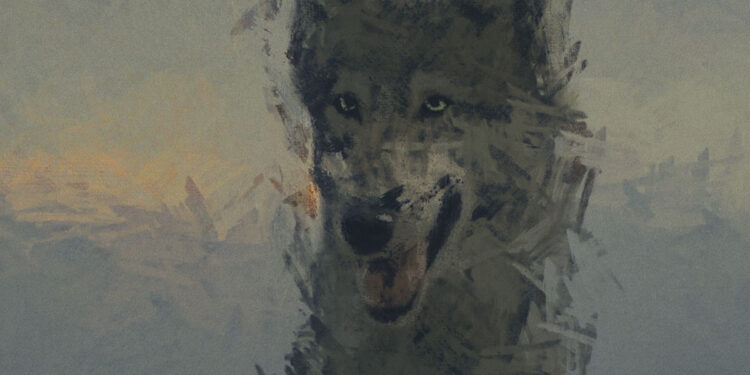

With the Toronto International Film Festival starting, there’s plenty to look forward to on the feature front. There’s also much room for discovery among Short Cuts, TIFF’s dedicated program of short films. Spread across seven groups and one feature pairing, this year’s Short Cuts comprises 48 shorts from 23 countries, the most titles in the program since 2019. There’s also one major change this year in the form of Strange Cuts, a set of six genre shorts one might describe as a bite-sized take on TIFF’s Midnight Madness.
This year also has the strongest collection of shorts in some time, which is partly why I decided to highlight 11 titles this year as opposed to the usual 10 (a self-imposed maximum due to limited time more than a lack of wanting to write about more films). Below are my thoughts on these 11 highlights from this year’s program, and be sure to check out the rest of what’s playing in this year’s Short Cuts.
The Beguiling (ishkwaazhe Shane McSauby)
One of the most surprising shorts in this year’s program, ishkwaazhe Shane McSauby’s The Beguiling starts with a seemingly perfect date between an Indigenous man (Benairen Kane) and woman (Kim Savarino). She invites him up to her place and the two bond over their respective pasts and identities, until her focus on Indigenous culture becomes more of a concern than desire for connection. McSauby plays with genre expectations, starting out with romance, letting horror and comedy creep in, then finally revealing what The Beguiling is really about. Revealing the surprise would spoil the fun of watching McSauby’s film, but––without giving too much away––the insidious manner in which he blends genres goes hand-in-hand with the disturbing, relevant theme he addresses in the final minutes. If one sees identity as a place for people to find refuge and solidarity, The Beguiling serves as a playful reminder that it’s best to never fully let one’s guard down.
The Cost of Hugging (Louis Bhose)
Louis Bhose’s entertaining short opens at a bar in Ibiza where Erica (Josie Walker) looks utterly miserable while sipping a cocktail. She’s the right target for Jacques (Jonathan Aris), a skeevy lothario who tries wooing her into bed. But Erica, who’s unhappy in her marriage and career, has no interest in Jacques besides telling him why she’s suicidally depressed. Similar to The Beguiling, it’s best not to reveal much about The Cost of Hugging; its enjoyment comes from the surprises within. Erica’s reasons for her emotional state are so flat-out ridiculous it’s hard not to laugh at them––until the plot takes a turn that takes things in an even more unexpected direction. What sells it is Walker’s committed performance as Erica, who conveys such palpable despair it’s a perfect contrast against an absurd story.
La Voix des Sirènes (Gianluigi Toccafondo)
You’ve probably seen Gianluigi Toccafondo’s work before, like his animation for Scott Free Productions. Toccafondo’s methods involve printing out photos that he draws and paints on to change the images entirely, giving his work an amorphous look that can veer between the beautiful and uncanny valley from one frame to the next. In La Voix des Sirènes, he tells the story of a mermaid creature who births two children before getting devoured by a shark-like animal, then follows the two separated babies as they grow and adapt on their own. At least that’s how I saw it: so much of Toccafondo’s hypnotic and unsettling film is an invitation to get lost in its images, colors, sounds, and music (Marco Molinelli’s excellent work on the score and sound are a vital part of what makes La Voix des Sirènes so compelling). It’s easily one of the must-sees in this year’s program.
The Man Who Could Not Remain Silent (Nebojša Slijepčević)
The winner of this year’s short film Palme d’Or at Cannes drops viewers in a train compartment in 1993 Bosnia and Herzegovina, where several passengers deal with a group of paramilitary soldiers on a mission to capture any Bosniaks they find aboard. Given the historical subject matter, it’s easy to compare The Man Who Could Not Remain Silent to Jasmila Žbanić’s film Quo Vadis, Aida?, although both are strong examples of the dread and helplessness one feels in the face of atrocity. Despite the title, writer-director Nebojša Slijepčević focuses on a passenger who decides to keep quiet, then contrasts them with someone brave enough to speak against what’s going on. Rather than treat the film as a “What would you do?” scenario, Slijepčević remains ambivalent about each person’s actions or inaction, instead lingering on the horror of a situation with no ideal outcome.
Masterpiece Mommy (Dorothy Sing Zhang)
There’s a lot going on in Masterpiece Mommy, Dorothy Sing Zhang’s musical about the fraught relationship between Tess (Christina Tam) and her daughter Justine (Leah Dou). After Tess gets injured in a fall, an X-ray reveals a lump in one of her breasts, prompting her doctor to order a mammogram. Sing Zhang’s approach to the musical is distinct: when Tess gets her mammogram, she joins a nurse in a duet, both of them singing off-pitch with the machine’s melodic sounds acting as backing track. It’s awkward and unconventional, but makes sense for a film about characters who can’t properly express feelings. The perspective then switches to Justine, who grapples with her own complicated emotions towards her mother through song. The music (with songs by Alex Minyailo and a score by Sebastian Gainsborough) bounces, without warning, from the orchestral to industrial. This mirrors Justine’s complex and messy personal crisis, and it’s through that process that both women find a place to move forward. It’s exciting to see Sing Zhang’s ambition throughout Masterpiece Mommy, where she makes bold, risky decisions that enrich the mother-daughter relationship at the film’s center.
One Day This Kid (Alexander Farah)
Inspired by David Wojnarowicz’s artwork, Alexander Farah’s powerful One Day This Kid observes the life of a half-Afghan, half-Iranian child growing up with his strict family in Canada. Told in a series of brief yet formative scenes across the boy’s life, Farah shows the unspoken tension that builds over the years as the boy discovers his attraction to men, and how that realization strains the bond between him and his father. Farah develops this relationship and the protagonist’s identity through moments and gestures that should be relatable for anyone who’s gone through a similar awakening: being self-conscious of your own “femininity,” curious glances at men in pools and locker rooms, homophobia among teenage boys, and the ways parents talk around a truth they don’t want to accept. The film’s moving final section, where earlier scenes echo themselves in the lead’s adult life, packs a wallop in its portrayal of how the experiences that shaped him continue to weigh.
On the Way (Samir Karahoda)
A father picks his son up from soccer practice, and on the drive home they make a detour to pick up a package from the post office. That straightforward premise gets complicated in On the Way, their simple trip turning into a dark, comedic portrait of director Samir Karahoda’s home country of Kosovo. Co-written by Karahoda and his son (who also plays the son in his film) On the Way establishes a generational divide between the father’s half-hearted patriotism and his kid’s pragmatic assessment of Kosovo offering few prospects. Karahoda’s direction counters the bleakness with a dry sense of humor through lengthy takes and fixed long shots, while his cinematography reflects the father’s conflicted state of mind. The drab, gray imagery of the vacant countryside has a striking look, implying an abandoned beauty in the surrounding landscapes.
perfectly a strangeness (Alison McAlpine)
Set in Chile’s Atacama desert, Alison McAlpine’s short splits itself into two distinct parts. The first takes place during the day, when three donkeys (credited as Palomo, Ruperto, and Palaye) wander around an astronomical observatory. McAlpine follows them while they silently walk from one building to another, with some rests in-between. The second part starts once the sun sets, the telescope domes open, and the donkeys watch the massive machines light up the sky. McAlpine’s structure of these events––where animals rule over the land during the day and the man-made telescopes take over at night––suggest an ongoing ritual between her subjects. The formal switch-up between these two sections, from observational documentary to fast-paced montage of arresting imagery, makes perfectly a strangeness an intriguing experience: McAlpine seeks out a connection between man, machine, animal, and the cosmos.
Sauna Day (Anna Hints and Tushar Prakash)
After her 2023 documentary Smoke Sauna Sisterhood, Anna Hints returns to the setting of Estonian saunas with co-director Tushar Prakash in Sauna Day. Hints and Prakash film a group of men in a sauna, sitting together awkwardly and making small talk until two men remain. Once they’re alone, they engage in an intense, erotic routine that involves whipping each other with branches. Sauna Day films the action in isolated shots, highlighting the men’s gestures and movements as signs of the contradictory nature of their behavior: distance and intimacy, sensuality and aggression, feelings expressed through actions rather than words, all within the confined space of the sauna. By the end, when we watch the men cool off outdoors in a state of bliss, we’ve witnessed something so intimate it’s as if being let in on someone else’s secret.
welima’q (shalan joudry)
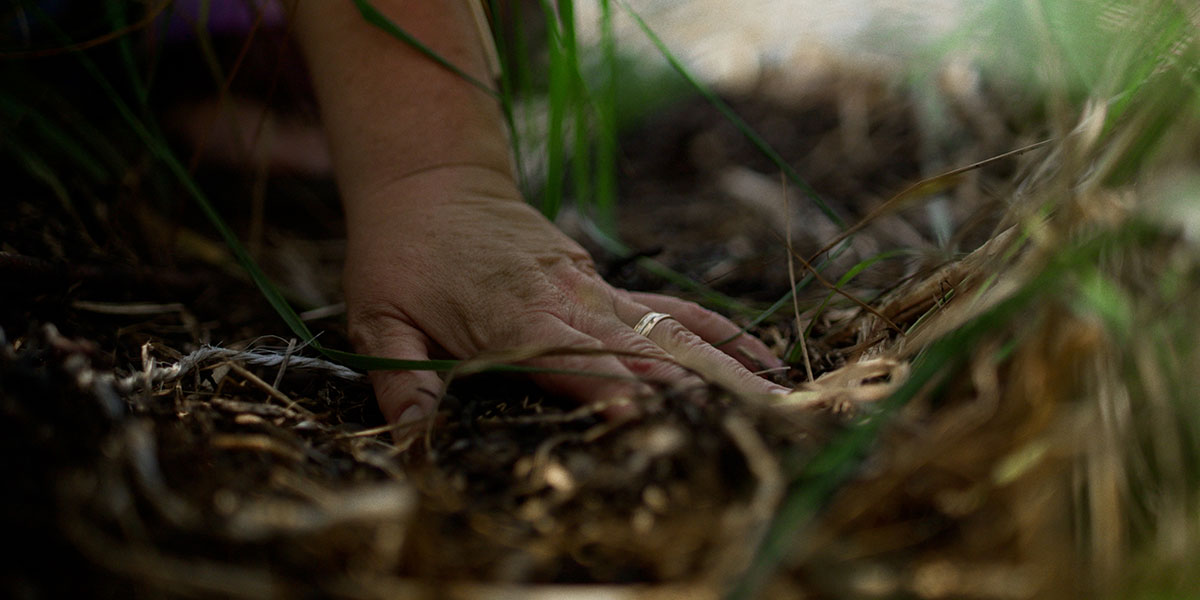
A field of sweetgrass blows in the wind, filmed in a series of shallow-focus close-ups. Then, looking like giants from a low-angle shot, a woman and two children enter the field to pick and gather the grass. Director shalan joudry keeps the emphasis on the environment rather than the people. The soundtrack fills with blowing wind, buzzing insects, and chirping birds as we observe the woman and children move within the field, coexisting with their surroundings rather than intruding on them. In just five minutes, joudry creates a calm, entrancing, remarkable effort with welima’q, a feat of using a seemingly small set of materials to open a new world. The title, which comes from the Mi’kmaw language, gets translated to English at the end as a sentiment the film perfectly evokes.
The Wolf (Theodore Ushev)
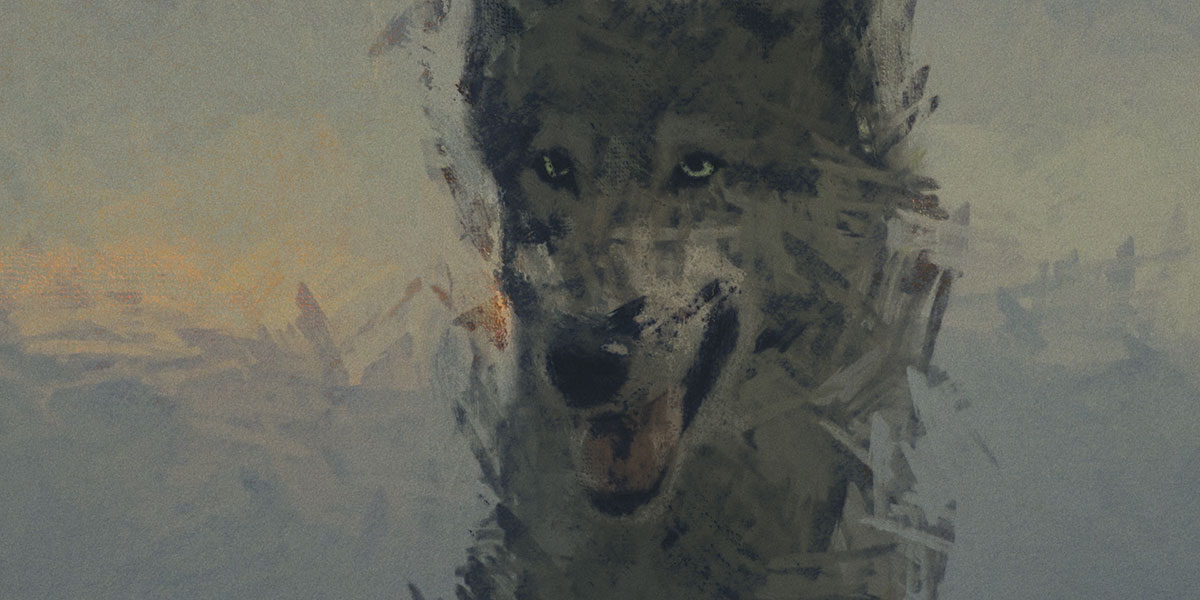
Theodore Ushev has been steadily making shorts since the 2000s, and he’s no stranger to the Short Cuts program. Ushev says his methods are driven by the stories he wants to tell: the work is defined by his approach, which involves experimenting with different methods of drawing and painting by hand or digitally. For The Wolf, which shows an ongoing battle between a hunter and a pack of wolves around his cabin, Ushev created the film with 3D animation and then, by hand, redrew each frame with acrylic paint. The results of that process are mesmerizing, a collection of abstract drawings that come together in motion in constantly unexpected ways. The tactile quality of Ushev’s painstaking work meshes nicely with his stripped-down story, which looks at the struggle between man and nature as a ceaseless back-and-forth with no real victor.
The post 11 Must-See Short Films at TIFF 2024 first appeared on The Film Stage.


